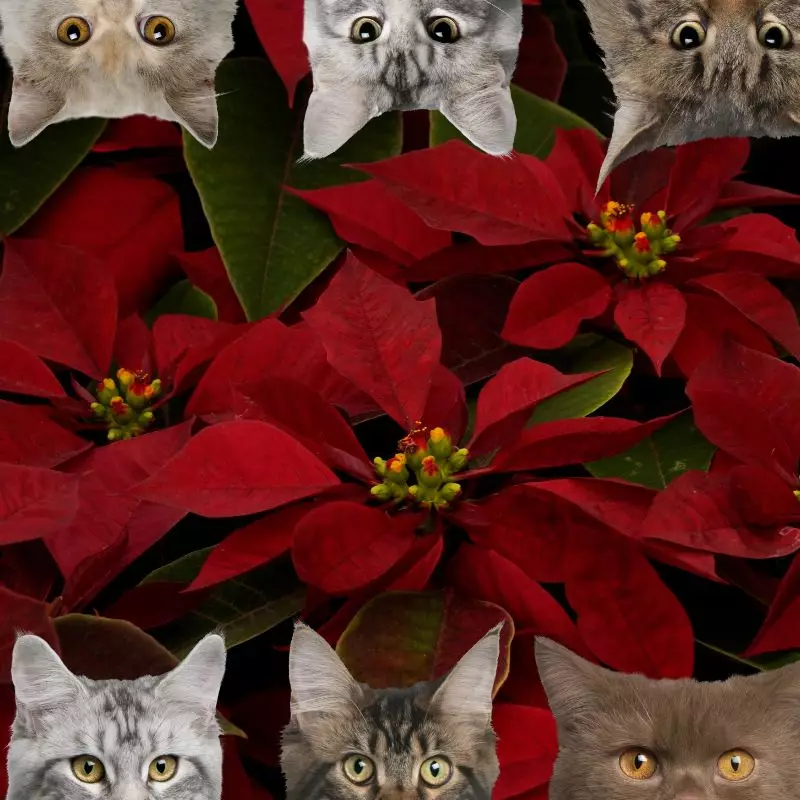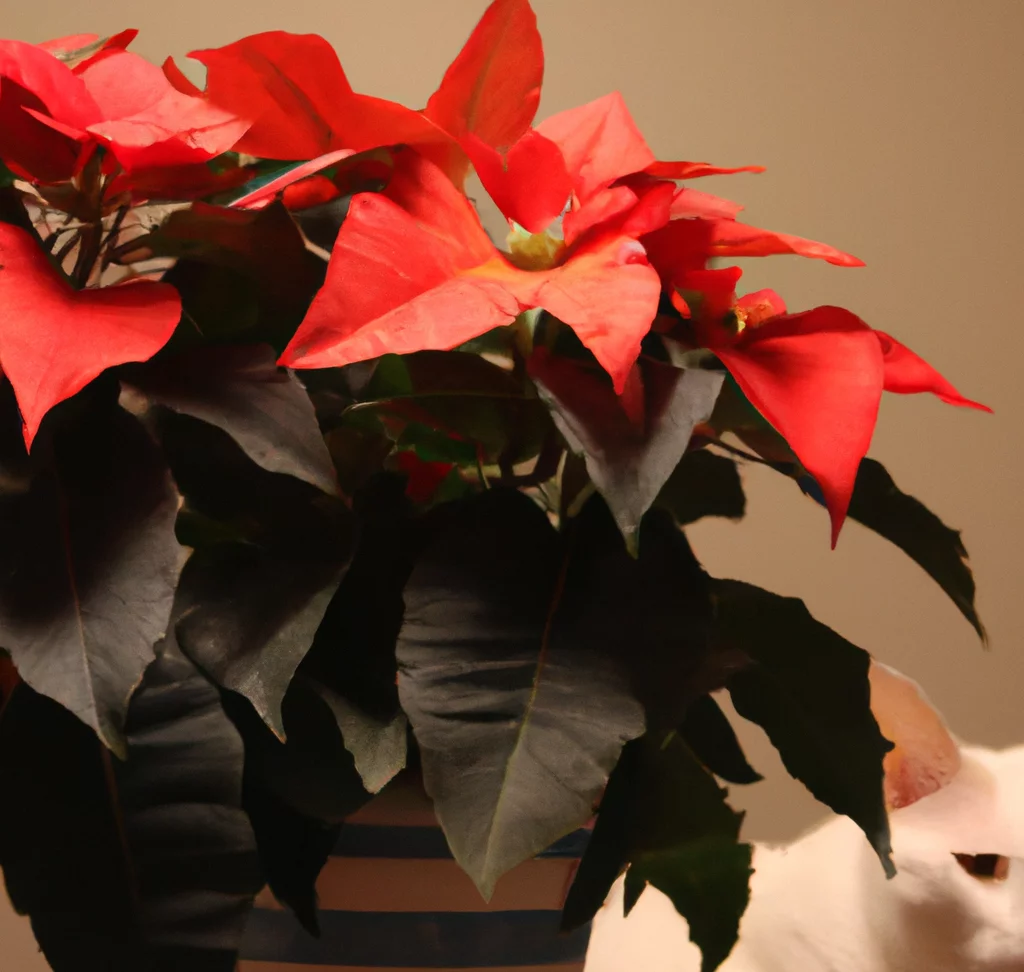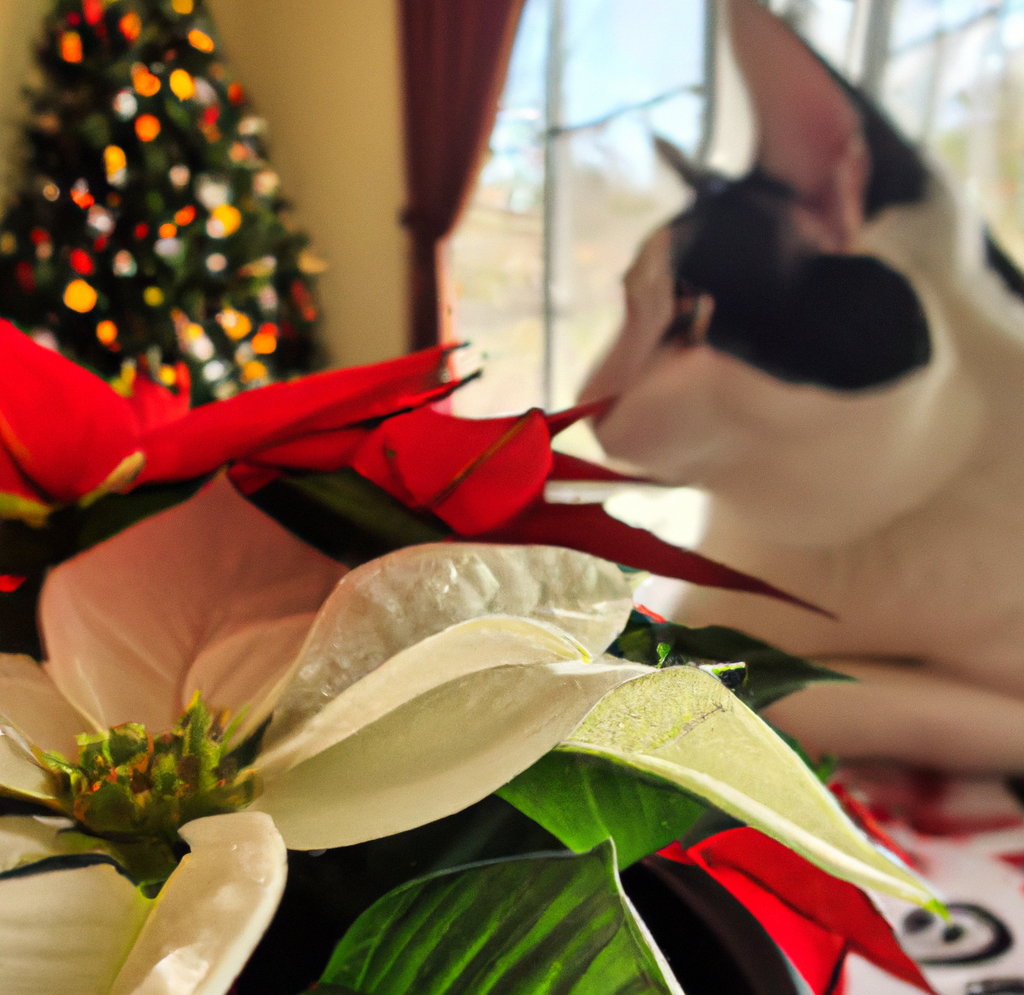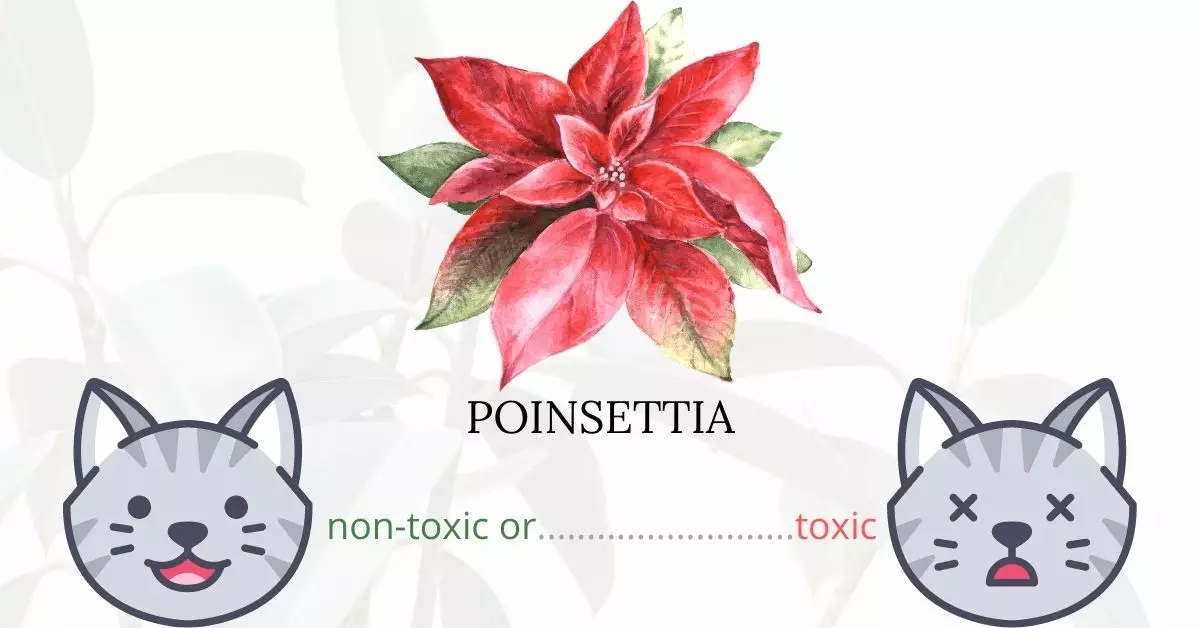Poinsettias, renowned for their festive appeal, indeed pose toxicity risks to felines. To succinctly address the title query, poinsettias are toxic to cats, primarily due to the sap they contain.
This article has been meticulously crafted in collaboration with a team of seasoned Doctors of Veterinary Medicine (DVMs), whose insights have enriched the content, ensuring the provision of accurate, reliable, and contemporary information concerning the possible risks presented by various plants, particularly poinsettias in this context, and their implications on feline well-being. Our research process rigorously involved consulting high-authority websites such as ASPCA and PetMD to substantiate every piece of information related to plants.
The poinsettia’s sap, distinguished by its milky white coloration, contains compounds like diterpenoid euphorbol esters and steroids exhibiting saponin characteristics, functioning as a detergent. Essentially, this sap exhibits latex properties, serving a dual purpose for the plant—it aids in preserving moisture and deterring animals and insects from consuming the plant owing to its bitter taste and toxicity in substantial quantities. When ingested by cats, the sap is notorious for causing tissue damage, often leading to inflammation in the cat’s mouth and esophagus and resulting in gastrointestinal distress.
Clinical Signs of Poinsettia Poisoning in Cats

The clinical manifestations of poinsettia poisoning in cats are generally mild but require vigilant observation and prompt veterinary consultation. If a cat has contacted, smelled, or ingested the poinsettia plant, the following symptoms may manifest due to the irritants present in the plant’s sap, primarily the diterpenoid euphorbol esters and saponin-like steroids:
- Excessive Drooling: Excessive drooling occurs as the cat’s body attempts to rid itself of the irritating compounds present in the poinsettia sap, acting as a defense mechanism to protect the gastrointestinal tract by preventing ingestion.
- Frequent Lip Licking: Frequent lip licking is indicative of discomfort and is a cat’s reflexive response to the irritating or burning sensation caused by the sap, serving as a self-soothing action.
- Vomiting: The ingestion of poinsettia sap can lead to vomiting as the cat’s body reacts to the irritant, attempting to expel the toxic substance from its system to prevent further damage.
- Diarrhea: Diarrhea results as the ingested toxins alter the regular gastrointestinal function, leading to increased bowel movements as the body endeavors to eliminate the toxins quickly.
- Swelling and Redness: Contact with poinsettia sap can cause local inflammation, manifested as swelling and redness, due to the body’s immune response to the irritating compounds.
- Itchiness: The irritating nature of the sap induces itchiness, as the body responds to the irritant, prompting the cat to scratch the affected area.
Despite the mildness of these symptoms, immediate veterinary intervention is crucial to prevent any escalation of the condition and to administer appropriate treatment to alleviate discomfort and ensure the well-being of the cat. The symptoms, though typically not severe, can cause distress and discomfort, warranting prompt and proper care.
First Aid and Treatment of Poinsettia Poisoning in Cats

You can care for your cat at home as long as the symptoms are mild and you notice that he or she is improving.
If your cat is vomiting, you should remove all food while keeping water available. When the vomiting has stopped, give your cat a small amount of his or her regular food. If your cat’s vomiting does not seem to improve and he or she is unable to keep even water down, consult your veterinarian or go to an emergency clinic right away.
The vet will do symptomatic treatment and address your cat’s symptoms as they arise. The treatment process usually includes administering IV fluids and activated charcoal, performing gastric lavage, and inducing vomit.
Recovery from Poinsettia Poisoning in Cats

Because the symptoms of poinsettia poisoning are so mild, they usually go away on their own. Most cats recover completely within 24 hours. Give your cat a quiet space at home to recover.
Prevention of Poinsettia Poisoning in Cats
Keep poinsettias out of your cat’s reach. If possible, avoid using poinsettias and try to look for alternative decorations on holidays. Limiting your cat’s outdoor activities will also help in minimizing the possibilities of encountering poinsettias and other toxic plants.
If you love plants but have cats at home, check out these lists:





